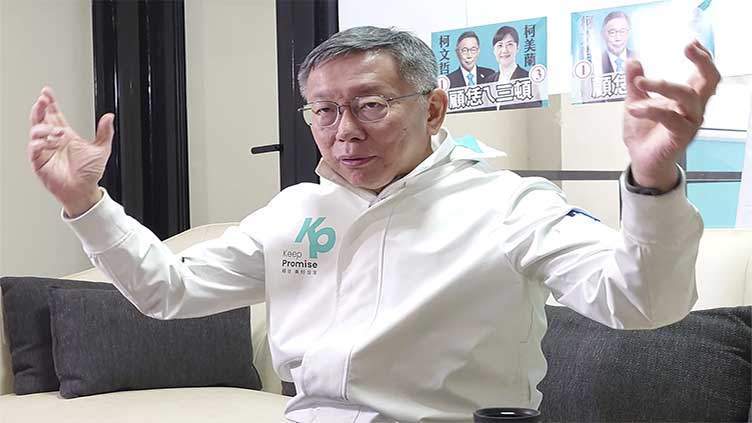Taiwan's presidential candidate Ko Wen-je seeks a middle ground with China, attracting young voters

World
Taiwan’s presidential candidate Ko Wen-je seeks a middle ground with China, attracting young voters
HSINCHU, Taiwan (AP) — With Taiwan’s presidential and parliamentary elections less than two weeks away, the island’s alternative party candidate Ko Wen-je is promoting a policy of patience toward China, which has been upping its threat to annex the island by force.
In the middle of a day of campaigning in the city of Hsinchu, home to many of Taiwan’s most prosperous technology firms, Ko took a half-hour lunch break to speak with The Associated Press in Mandarin Chinese and English, often expanding on his answers in his well-known erudite manner.
Ko, a surgeon and former mayor of the capital Taipei, likened the relationship between the sides to a tumor that should be left to itself while the sides engage in talks on a future relationship. “Thirty years ago, when I was a surgeon, if we found a tumor, we would try to remove it. But at this moment, we just try to live with it,” he said. China remains an issue that must be managed, without sparking a major confrontation between the sides, he said.
While Taiwan’s elections are largely determined by issues of social equity, employment, education and welfare, relations with China are always an overarching issue in presidential elections.
Taiwan split from China amid civil war in 1949 and the two remain politically at odds, even while their cultural ties remain strong and their economic relations a driver for global markets in high-technology. China sends navy ships and warplanes close to the island on daily basis.
Ko is chairman of the Taiwan People’s Party and has cooperated in the past with both the ruling Democratic Progressive Party, which strongly backs Taiwan’s state of de-facto independence, and the main opposition Nationalists, known as the Kuomintang or KMT, which holds that Taiwan and the mainland are part of a single Chinese nation while insisting on upholding the self-ruled island’s democracy in face of Chinese pressure.
The TPP has been filling a space in between that has drawn strong support from younger voters unwilling to follow their parents’ political allegiances and are less sensitive to the cultural divide between those with longstanding ties to the island and others whose families migrated there during the civil war.
While Ko does not stir crowds in the same manner as traditional Taiwanese politicians, his drive and non-conformist manner have made him a significant player with those looking for a political alternative.


